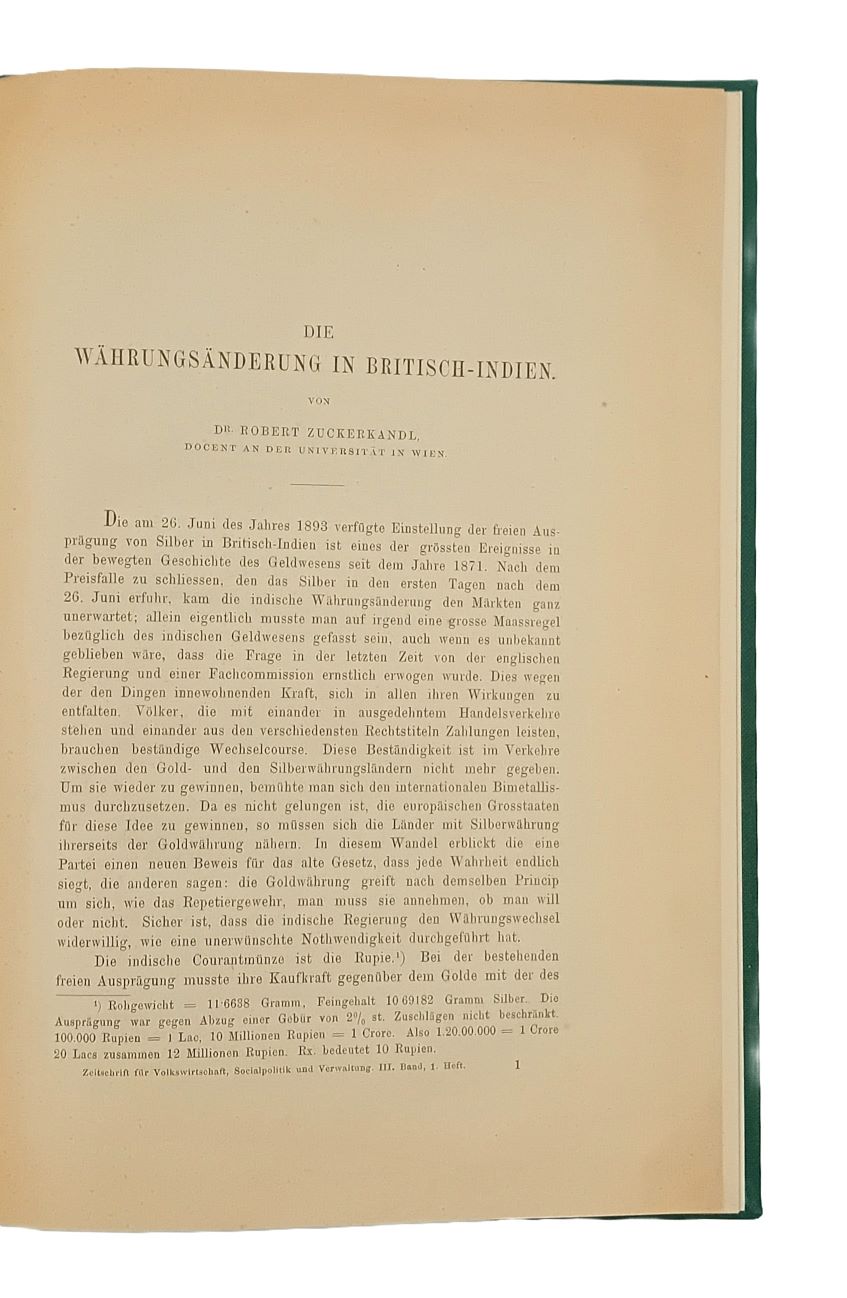WICKSTEED, Charles.
The Land for the people: how to obtain it and how to manage it. Being an attempt to draw out the lines on which the land may be regained without disturbance, and so managed as practically to realise the grand conception of the ideal equal rights of man to the earth. Also an attempt to foreshadow to some extent the results of founding our civilisation on justice, especially its effect on the power, distribution, and use of capital.
London, William Reeves, 1885.
8vo, pp. vii, 120; disbound.
Added to your basket:
The Land for the people: how to obtain it and how to manage it. Being an attempt to draw out the lines on which the land may be regained without disturbance, and so managed as practically to realise the grand conception of the ideal equal rights of man to the earth. Also an attempt to foreshadow to some extent the results of founding our civilisation on justice, especially its effect on the power, distribution, and use of capital.
First edition. Wicksteed (1810–1885), a Unitarian minister and father of the economist Phillip Wicksteed, was ‘an erudite and thoughtful man and a popular and important preacher’ (Oxford DNB). He is described on the title of the present work as ‘President of Kettering Liberal Association’. ‘Is nationalisation of the land the wildest of all wild schemes, or is it practicable in every way – a good without an evil, and a glorious illustration of the harmony of God’s laws? This is the question I am going to try and do something towards answering in the following pages’ (p. 1).
NUC records one copy only (University of Chicago).

